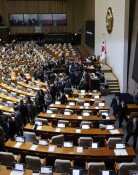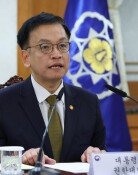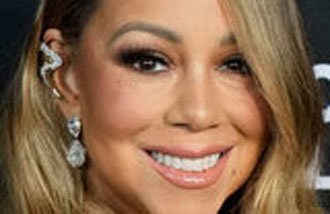Minimum wage decisions should not be made haphazardly
Minimum wage decisions should not be made haphazardly
Posted July. 13, 2024 08:00,
Updated July. 13, 2024 08:00
Next year's minimum wage has been set at 10,030 won per hour, an increase of 170 won from this year. This marks the first time in 37 years since the introduction of the minimum wage in 1988 that it has surpassed 10,000 won. When converted to a monthly salary, it amounts to 2,096,270 won. Once again, instead of profoundly considering the economic ripple effects, the public interest members of the Minimum Wage Commission, who effectively represent the government, have repeated the pattern of compromising at a middling level while trying to appease both labor and management.
The Minimum Wage Commission members held a meeting until early morning, voting on two revised proposals by labor and management, ultimately deciding on a 1.7% increase as suggested by the management. Four members from the Korean Confederation of Trade Unions (KCTU) did not participate in the vote. Next year's increase rate is the second lowest on record, following the 1.5% increase in 2021 during the height of the COVID-19 pandemic. Differentiation for certain sectors, such as food and beverage and hospitality, was excluded from discussions early on due to opposition from the labor sector. The labor sector is protesting the increase, which falls short of the inflation rate, calling it a "real wage cut." Meanwhile, businesses and self-employed individuals who had advocated for a freeze are dissatisfied, expressing that the psychological threshold of 10,000 won has been breached.
Although the increase for next year is modest, Korea's minimum wage is already among the highest in Asia this year, surpassing the minimum wage in Japan, Taiwan, and Hong Kong. Considering the weekly holiday allowance for working more than 15 hours a week, the effective hourly wage for next year will be 12,036 won. This has raised concerns that there may be an increase in 'one-person' businesses that cut back on employees and install self-checkout systems, 'split shifts' for part-timers working less than 15 hours a week, and a rise in small business closures.
The unsatisfactory outcome for both labor and management is due to issues within the decision-making structure. The two major labor unions, which represent regular employees of large corporations and public enterprises who are not concerned about losing their jobs even with a minimum wage increase, dominate labor representation. As a result, the voices of vulnerable groups and non-regular workers, who are directly affected by wage increases, are not adequately reflected. Moreover, the problem is compounded by labor and management negotiating haphazardly, using selective economic indicators that favor their respective sides without objectively and comprehensively assessing the overall economy.
Ultimately, next year's minimum wage is a political compromise that considers the demands of small business owners and SMEs while barely meeting the labor sector's long-standing goal of surpassing 10,000 won. Even within the Minimum Wage Commission that made this decision, there are assessments that the current decision-making system has reached its limits. The government and the National Assembly need to start overhauling the system to determine the minimum wage from the ground up.







